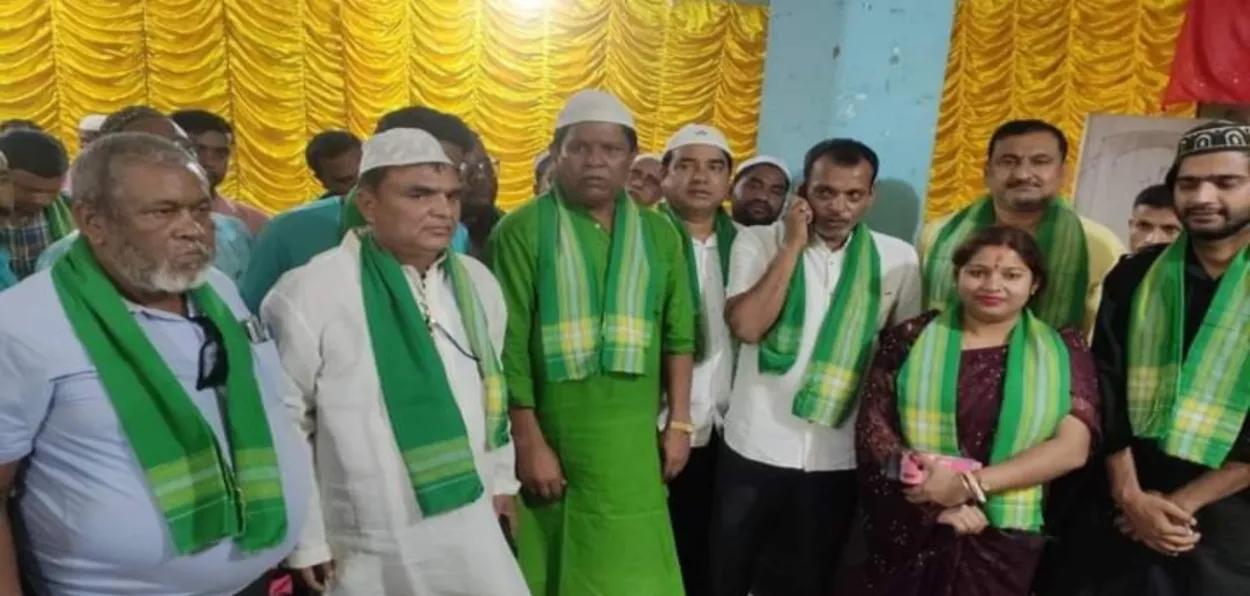
Daulat Rahman/Guwahati
The Assam Government has received 146 suggestions from various stakeholders supporting as against three opposing the government’s move to bring a legislation to ban polygamy in the State.
Chief Minister Himanta Biswa Sarma in his X (formerly Twiitter) handle wrote that a total of 149 suggestions were received in response to the public notice issued by his government. Out of these, 146 suggestions are in favour of the bill, indicating strong public support. However, 3 organizations have expressed their opposition to the bill.
"We will now proceed to the next stage of the process, which is to complete the final drafting of the bill in the next 45 days," chief minister Sarma tweeted.
On August 21, the Assam government had sought suggestions and opinions of all the stakeholders on the proposed law to ban polygamy in the state.
Earlier, an expert committee was constituted by the Assam Government to find out whether the state has the legislative competence to enact a law to end polygamy.
The expert committee headed by retired judge of Gauhati High Court Rumi Kumari Phukan had asserted that since polygamy is not an essential religious practice under Islam, the enactment of any law prohibiting such practice will not offend Article 25 (right to practice, profess and propagate religion) of the Constitution.
It has mentioned in its report that the custom of Muslim men marrying up to four women is not an essential religious practice in Islam.
“Under Muslim personal law, polygamy is permitted but is not compulsory. It is not in the nature of an essential practice requiring every Muslim man to mandatorily have four wives. Since polygamy is not an essential religious practice under Islam, the enactment of any law prohibiting such practice will not offend Article 25 (right to practice, profess and propagate religion) of the Constitution,” the committee said.
According to the expert committee a legislation has become a necessity as polygamy infringes fundamental rights guaranteed to Muslim women under Articles 14 (right to equality), 15 (non-discrimination on the ground of gender) and 21 (right to life and dignity). The panel said since marriage and divorce fall in the Concurrent List, both the Centre and the state had legislative competence to enact laws on these two issues. It, however, said since the issues of marriage and divorce is occupied by a pre-existing central law, the state-enacted law would be enforceable in its jurisdiction only on receiving the Presidential assent
The expert committee said polygamy was abolished amongst Hindus, Buddhists and the Sikhs after the enactment of the Hindu Marriage Act, 1955, amongst Christians by the Christian Marriage Act, 1872, and amongst Parsis by the Parsi Marriage and Divorce Act, 1936.
However, polygamy continues to be practised by Muslims because of the protection by the Muslim Personal Laws (Shariat) Act 1937.
“The practice of polygamy is mentioned in Surah 4:3 of the Holy Quran from which it is understood that it is permitted but not encouraged,” the committee said and referred to various commentaries on Islamic personal laws. It opined that polygamy is not an essential part of Islam.
After the expert committee submitted its report to chief minister Himanta Biswa Sarma last week, Sarma said bring a new anti-polygamy law will be introduced within the current financial year (2023-24) in case the final decision is not taken on a Uniform Civil Code (UCC).
The expert committee led by Justice (Retd.) Rumi Kumari Phukan comprises members Devajit Saikia, Advocate General of Assam, Nalin Kohli, Senior Additional Advocate General of Assam, and Nekibur Zaman, Senior Advocate of Gauhati High Court.
